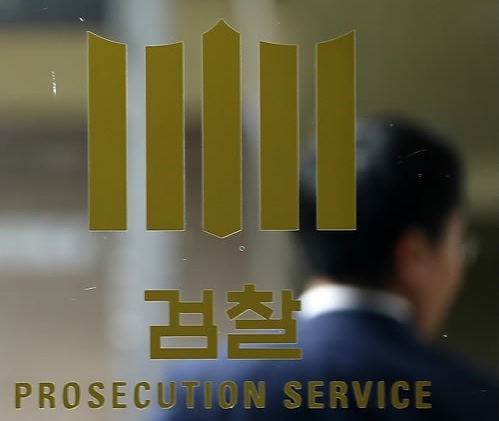
여야가 상설특검 및 특별감찰관제 도입, 대검 중수부 폐지 등의 입법조치를 올 상반기 중 완료키로 합의함에 따라 검찰개혁에 속도가 더 붙을 것으로 전망된다.
다만, 검찰에서는 기업 수사 기능 등을 대체할 수단을 충분히 고려하지 않고 입법 일정을 앞당기는 데 회의적인 시각도 없지 않다.
정부조직개편 합의사항 중 검찰 개혁 관련 내용은 ▲상설특검 및 특별감찰관제 도입과 중수부 폐지 ▲법무부 요직의 검사 임용 제한 ▲검찰인사위 실질권한 부여 ▲비리검사 개업 제한 등이다.
검사장 직급 규모 축소는 연내 마무리한다는 일정을 짰다.
합의안은 대선 과정에서 안대희 전 새누리당 정치쇄신특위위원장이 밝혔던 '특별감찰관-상설특검 연계방안'을 기초로 한 것으로 보인다.
대통령 친인척 및 권력 실세 비리에 대한 조사권•고발권을 가진 특별감찰관이 첩보수집과 내사 후 사건을 내려 보내면 상설특검이 수사하는 방식이다.
상설특검은 최근 내곡동 특검까지 그 동안 11차례 특검 수사처럼 특정한 사안을 수사하는 '제도특검'과는 다르다. 물론 입법과정이 필요하다.
검찰국장은 법무부의 검찰 관련 업무를 총괄하는 요직이다. 중수부장은 검찰총장 의 직할부대이자 특수수사 총본산 역할을 해왔고, 공안부장은 검찰총장의 공안 분야 참모다.
과거 인사에서는 빅4 중에도 서울중앙지검장과 중수부장이 스포트라이트를 받았다.
그러나 여야가 상반기 중 중수부 폐지와 상설특검 도입에 합의하면서 이번 인사부터는 중앙지검장의 비중이 다른 자리보다 훨씬 커지게 됐다.
중수부 폐지로 대형 부정부패 수사가 중앙지검으로 집중될 가능성이 크기 때문이다. 상설특검이 주요 권력형 비리를 수사한다고 해도 기업 비리 등 수많은 사건을 전부 처리하기는 불가능할 것으로 예상된다.
이에 따라 '빅4' 구도 대신 '1강 1중 2약' 또는 '1강 3약' 형태가 될 전망이다. 검찰의 '빅4'란 서울중앙지검장 (고검장급)과 법무부 검찰국장, 대검 중앙수사부장, 대검 공안부장을 일컫는 말이다.
중앙지검장에 이어 법무부 검찰국장, 그다음 대검 참모인 중수•공안부장이 거론되는 구도다.
당초 연내로 잡혔던 중수부 폐지를 상반기로 앞당긴다는 합의에 대해 검찰에서는 충분한 검토가 선행돼야 한다는 입장이 나왔다.
대검 고위관계자는 "기본적으로 국회의 논의 결과는 존중돼야 한다는 입장"이라면서도 "중수부를 연내 폐지하기로 인수위와 대통령 보고까지 마친 상황에서 갑자기 상반기 내 입법조치를 완료하겠다는 여야 합의는 다소 의아하고 당황스럽다"고 말했다.
이 관계자는 "연내 폐지에 맞춰 여러 대안을 검토하고 시행계획을 준비하고 있는데 상반기로 당겨질지 의문"이라며 "중수부의 사정 및 수사 기능 대안에 대한 장단점 분석, 공청회 개최 등에 걸리는 물리적 시간을 고려하면 상반기 입법조치 완료는 쉽지 않을 것"으로 전망했다.
재경지검의 한 검사는 "대통령이 중수부 폐지를 공약으로 내건 만큼 실행에는 의문의 여지가 없다"면서 "다만 대안을 충분히 검토하고 건설적인 방향으로 의견이 모이지 않을까 했는데 (상반기 완료로) 합의한 건 아쉽다"고 말했다.
재경지검의 다른 부장검사는 "사정수사의 큰 축인 중수부를 없애면서 공백에 대한 고민이 없다"며 "상설특검-특별감찰관제로는 기업 수사를 맡지 못하는 구조적 한계가 있어 중수부를 완벽히 대체하기 어려울 것"이라고 전망했다.
검사의 법무부 파견 제한에 대해서는 긍정적인 반응도 나왔다.
한 부장검사는 "법무실이나 출입국본부 등에는 꼭 검사가 아니더라도 일할 수 있는 영역이 많다"면서 "외부인사가 들어와 활발히 의견개진을 한다면 법무부 조직 전체에 긍정적인 면이 있을 것"이라고 말했다. (코리아헤럴드)
<관련 영문 기사>
Deal clears way for prosecution reform
By Cho Chung-un
President Park Geun-hye is set to embark on much-debated prosecution reform, expected to sharply reduce its power and organization, following a political agreement on the government reorganization plan.
The ruling Saenuri Party and the Democratic United Party on Sunday struck an agreement to pass Park’s government overhaul proposal, which includes a major restructuring of the prosecution office.
The plan calls for the abolishment of the powerful Central Investigation Department at the Supreme Prosecutors’ Office, which handles cases involving government officials, politicians and businessmen, and has long been accused of political bias and connection.
In the place of the special unit, the overhaul plan envisions the establishment of a permanent independent counsel and another new independent inspection body to deal with cases involving the presidential family members and high-ranking officials.
Both parties agreed to pass the prosecution reform bill within the first half of the year.
During the presidential campaign, Park called for the dilution of the prosecution’s excessive power.
The prosecution has been under mounting pressure to reform following a series of scandals involving bribes, sex and abuse of power. The elite law enforcement agency, which holds exclusive rights to indictment in the country’s criminal justice system, however, has been resisting moves for reform.
The political parties also agreed to cut the number of key posts reserved for prosecutors in the Justice Ministry as well as the number of vice ministerial level posts in the prosecution. The plan also includes a proposal imposing stricter rules for dismissed prosecutors for corruption if they start working as lawyers.
Creating a separate office empowered to investigate high-profile cases is at the center of the reform bill.
The Central Investigation Department of the Supreme Prosecutors’ Office has handled most high-profile cases involving presidents, other high-ranking officials and chaebol. However, the opposition parties have been calling for a radical change in the prosecution, saying that the CID has failed to remain politically neutral.
The prosecution expressed concerns that the planned closure of the CID would cause chaos in dealing with high-profile cases.
“Even with the new investigative unit, the prosecution can investigate cases involving irregularities of high-profile figures. This will overlap work of the prosecution and the new office,” a senior prosecutor was quoted as saying by Yonhap News Agency.
Abolishing the CID signals much-awaited reform in the prosecution, said Professor Yoon Pyong-joong of Hanshin University.
“The Korean prosecutors have enjoyed an unparalleled level of power that have prosecuted the presidents of Korea but have let themselves remain unpunished even if they commit crimes,” he said.
“The government needs to put the prosecution under the rules of the law and curb its unchallenged power by setting up any kind of new system or new organization,” he said.
Besides the planned closure of the CID, the government needs to devise effective tools to curb the prosecution’s power, said Shin Yul, a political professor at Myongji University.
“The abolishment of the CID is important but it can’t only disperse the prosecution’s power,” he said.
“It is important to seek a (administrative and legal) system to ensure the prosecution is politically neutral and contains its exclusive power to investigate high-profile cases.”
(christory@heraldcorp.com)




![[KH Explains] No more 'Michael' at Kakao Games](http://res.heraldm.com/phpwas/restmb_idxmake.php?idx=644&simg=/content/image/2024/04/28/20240428050183_0.jpg&u=20240428180321)





![[Grace Kao] Hybe vs. Ador: Inspiration, imitation and plagiarism](http://res.heraldm.com/phpwas/restmb_idxmake.php?idx=644&simg=/content/image/2024/04/28/20240428050220_0.jpg&u=)







